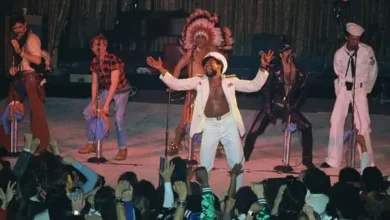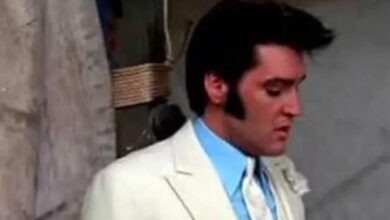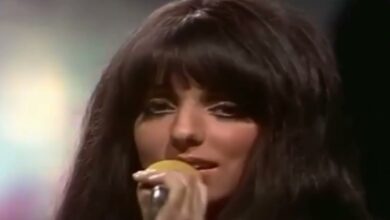Dave Clark Five’s “Glad All Over” – The Song That Rivaled The Beatles in 1964
When “Glad All Over” was released in late 1963, it marked the arrival of a band that would soon become one of the biggest challengers to The Beatles’ dominance in the British Invasion. By early 1964, the song had climbed to No. 1 on the UK Singles Chart, knocking The Beatles’ “I Want to Hold Your Hand” from the top spot. This achievement was no small feat, as Beatlemania was in full force. With its infectious energy, pounding drums, and anthemic chorus, “Glad All Over” became an anthem of the era, propelling the Dave Clark Five (DC5) to international stardom.
Unlike many British rock bands that emerged during the 1960s, the Dave Clark Five had a unique origin. Formed in the early 1960s in Tottenham, London, the band was led by drummer and business-savvy visionary Dave Clark. While most groups of the time were centered around a charismatic lead singer or guitarist, DC5 broke the mold by having their drummer as their leader. Alongside Clark, the band included lead vocalist and keyboardist Mike Smith, guitarist Lenny Davidson, bassist Rick Huxley, and saxophonist Denis Payton. Their sound was characterized by a thundering rhythm section and an aggressive, almost marching-band-like beat, setting them apart from their contemporaries.
The story behind “Glad All Over” is one of careful strategy and an instinct for what audiences wanted to hear. Dave Clark, who controlled the band’s recordings and business decisions, had an eye for creating stadium-ready rock songs. Written by Clark and Mike Smith, the song was designed to be a crowd-pleaser with its chant-like chorus and driving beat. The band had already gained a following playing at the Tottenham Royal, a dance hall in North London, and they specifically crafted “Glad All Over” to engage audiences in a call-and-response style. The result was a track that felt tailor-made for energetic performances, something that would later become a defining trait of DC5’s success.
The recording process for “Glad All Over” was deliberate, with Dave Clark ensuring the song had a distinct, punchy sound. Unlike many British bands at the time who recorded in major London studios under producer-driven setups, Clark preferred to maintain artistic control over the production process. The track was recorded with an emphasis on big drum sounds, powerful harmonies, and a saxophone-infused rock style. Mike Smith’s bold vocal delivery added to the song’s urgency, while the layered background vocals helped create a stadium-like atmosphere even within the confines of a studio.
Upon its release, the song quickly became a sensation. It climbed the UK charts and on January 16, 1964, it reached No. 1, dethroning The Beatles. This moment established the Dave Clark Five as a serious contender in the British rock scene. When the band took “Glad All Over” to America, they found similar success, with the song reaching No. 6 on the Billboard Hot 100. At a time when British bands were starting to dominate American airwaves, DC5 became the first British group to appear on The Ed Sullivan Show after The Beatles, further cementing their status as key players in the British Invasion.
Culturally, “Glad All Over” helped define the raucous, energetic side of the British Invasion sound. While The Beatles leaned into intricate melodies and lyrical depth, the Dave Clark Five offered something more primal—powerful, foot-stomping rock that got audiences moving. Their music was built for live performances, and their stage presence was a major factor in their appeal. “Glad All Over” became more than just a hit single; it was a statement that British rock was not a one-band phenomenon, and that The Beatles had competition.
For the Dave Clark Five, the success of “Glad All Over” launched a career that saw them rack up 17 Top 40 hits in the U.S. and a string of successful albums. Their upbeat, energetic sound kept them in the public eye throughout the mid-to-late 1960s. Unlike many of their contemporaries, however, they did not attempt to evolve significantly with the changing rock landscape. While bands like The Rolling Stones and The Beatles adapted to the psychedelic movement, DC5 largely stuck to their high-energy formula, which ultimately led to their gradual decline by the late ’60s.
The song’s influence extended beyond the band itself. “Glad All Over” is widely credited with helping solidify the “Tottenham Sound,” a harder-edged alternative to The Beatles’ more polished Merseybeat sound. It also inspired numerous later bands to embrace a more anthemic, chant-driven approach to rock. In the years that followed, punk and glam rock artists would adopt similar elements of audience engagement and rhythmic intensity.
The song was also covered by a variety of artists over the decades, ranging from punk bands to pop acts. It has been adopted as an unofficial anthem by several football (soccer) clubs, most notably Crystal Palace F.C., whose fans still chant the song at matches today. This continued popularity speaks to the track’s ability to connect with audiences across generations.
At the time of its release, “Glad All Over” was part of a larger cultural shift. The early 1960s were a period of excitement and transformation in music, with the British Invasion redefining global pop culture. The song captured the youthful energy of the era, providing a moment of pure, unfiltered joy in an increasingly complex musical landscape.
Over the years, the song has maintained a presence in classic rock playlists and British rock retrospectives. While the Dave Clark Five never quite reached the long-term legendary status of some of their peers, their contribution to the British Invasion remains significant. The energy and excitement they brought to rock music laid the groundwork for many stadium-ready rock anthems that followed.
The legacy of “Glad All Over” is one of infectious energy and crowd participation. Its call-and-response style foreshadowed the anthemic rock hits of later decades, from Queen’s “We Will Rock You” to modern stadium chants. Even today, the song’s pounding rhythm and upbeat spirit make it a favorite at sporting events and retro music celebrations.
In retrospect, “Glad All Over” was more than just a hit single—it was a battle cry for British rock’s global takeover. It proved that The Beatles weren’t the only game in town, and that the British Invasion was a movement far bigger than any one band. Decades later, it remains a feel-good anthem that encapsulates the exuberance of 1960s rock and roll.



